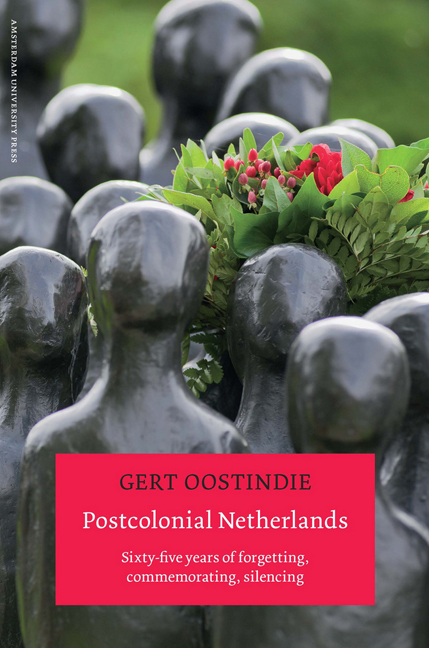Book contents
- Frontmatter
- Contents
- Introduction
- 1 Decolonization, Migration and the Postcolonial Bonus
- 2 Citizenship: Rights, Participation, Identification
- 3 The Struggle for Recognition: war and the Silent Migration
- 4 The Individualization of Identity
- 5 Imagining Colonialism
- 6 Transnationalism: a Turning Tide?
- 7 An International Perspective
- 8 ‘Postcolonial’ (in the) Netherlands
- Notes
- Bibliography
- Acknowledgements
- Index of People, Organizations and Memorial Sites
6 - Transnationalism: a Turning Tide?
Published online by Cambridge University Press: 20 January 2021
- Frontmatter
- Contents
- Introduction
- 1 Decolonization, Migration and the Postcolonial Bonus
- 2 Citizenship: Rights, Participation, Identification
- 3 The Struggle for Recognition: war and the Silent Migration
- 4 The Individualization of Identity
- 5 Imagining Colonialism
- 6 Transnationalism: a Turning Tide?
- 7 An International Perspective
- 8 ‘Postcolonial’ (in the) Netherlands
- Notes
- Bibliography
- Acknowledgements
- Index of People, Organizations and Memorial Sites
Summary
Long gone is the time when migrants, embarking on a new life overseas, bade farewell to their homeland forever. Technological developments, greater prosperity, and the enormity and complexity of post-war migration flows have resulted in transnationalism, in permanent and often intense relations between citizens of the countries of origin and immigration. This phenomenon has led to a boom in debates and publications over the last few decades. A degree of consensus has taken shape around the proposition that migrants in foreign countries (are able to) develop multiple orientations that connect them simultaneously to their countries of origin and immigration, as well as to ethnic or religious groups, or political movements elsewhere. Yet a key question has remained as to whether, in the context of widespread integration, the transnationalism of the first migrants would hold strong or lose its intensity over subsequent generations.
Studies in transnationalism stress that migrants are able to maintain a range of relations between countries of origin and host countries. This leads to ‘social spaces’ that transcend geographic, cultural, and political borders, involving and changing not only the migrants, but also those who stay behind. The migrant community does not only send money ‘home’; there are also political, social, and cultural remittances. Transnationalism thus contains a significant component of community (belonging) and identity. It is therefore not surprising that governments in the countries of origin often attempt to get a grip on their overseas citizens and whatever they send home in terms of money, goods, ideas, and emotions.
Countries of immigration respond in different ways to this transnationalism. Interference by foreign governments regarding migrants in a country of immigration are seldom appreciated. The space granted to transnational engagement by migrants varies enormously; the worry that transnationalism may stand in the way of integration is an important factor in this. National policy in a general sense corresponds with the degree to which multiculturalism is accepted, but more particularly with indications of political or religious radicalism. The idea that transnationalism is more or less supplanting the traditional nation state is not convincing in this light. Koopmans and Statham defend the opposite view on good grounds, namely, that the amount of space a host country provides is a crucial determinant of the strength of transnationalism found there.
- Type
- Chapter
- Information
- Postcolonial NetherlandsSixty-Five Years of Forgetting, Commemorating, Silencing, pp. 163 - 187Publisher: Amsterdam University PressPrint publication year: 2012



